Budget 2026: Fear Cork public transport gains will be derailed
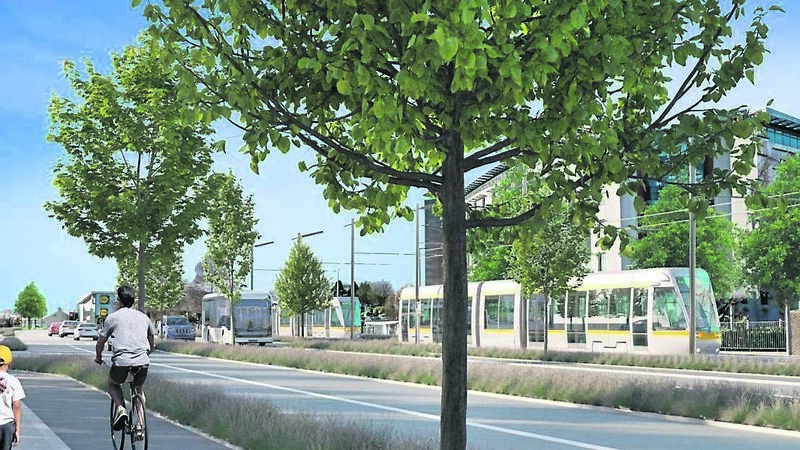
Plans have been unveiled for a major new bus interchange at the Black Ash Park and Ride, a project described as a “key element of the wider BusConnects Cork scheme”. Picture: via Cork City Council
Ahead of Budget 2026, Cork transport groups are hoping that the work of the Fianna Fáil, Fine Gael, and Green Party coalition will not be undone, and they are calling for more funding for big projects like BusConnects and the Cork Luas and measures to reduce car ownership.
A number of large transport projects are under way as part of the Cork Metropolitan Area Transport Strategy 2040.
Between April and June, Transport Infrastructure Ireland held a non-statutory public consultation on the preferred route for Luas Cork, which runs from Ballincollig to Mahon Point. Approximately 1,000 responses were received and the issues highlighted are being considered.
Also following a public consultation, the BusConnects Cork network — which aims to improve bus frequency, speed, and reliability — was published in June 2022, to increase by 50% bus services across the city. Planning has commenced and it is expected that the new bus network will be implemented on a phased basis in the coming years.
To enable this, 11 sustainable transport corridors are to be created. A business case was submitted to the Department of Transport in January, with Darragh O’Brien, the transport minister, saying in the Dáil last week: “I intend to bring BusConnects Cork to government shortly. If approved by Cabinet at Approval Gate 1 of the infrastructure guidelines, this will allow the programme to enter the planning process.”
Under phase one of the Cork commuter rail project, signalling upgrades, construction of a through platform at Kent Station (which launched in April), and double-tracking from Glounthaune to Midleton are expected to be completed by the end of 2026.
Phase two of the programme includes the electrification of the Cork commuter rail network and the delivery of up to eight new stations and upgrades to existing stations. A public consultation for phase two was completed in July, and Mr O’Brien said: “Subject to securing funding and achieving the relevant approvals, phase two of the programme will progress after phase-one works have been completed.”
All three of these public transport projects will need significant government funding.
A spokesperson for the Cork Commuter Coalition told The Echo that in the upcoming budget they would hope to see “continuation of existing funding for important projects, such as the Cork Luas and BusConnects, which have now advanced well in to planning stages, as well as the Cork commuter rail project, which itself has already improved service frequency and the beginning of dual-tracking of the railway.”
They added: “We also note recent reports about Ireland’s population growing faster than expected, and these projects need funding support to be advanced at a faster rate in order to keep up with these population increases, especially noting that Cork is Ireland’s fastest-growing city.
“Similarly, Micheál Martin’s comments about the budget’s focus on infrastructure need to be matched with progress toward the All-Island Strategic Rail Review.
“We also support the continuation of the reduced bus fares in ensuring that use of bus services remains at a financially accessible price point for riders. The initial reduction, back in 2023, was a key point in ensuring very strong ridership numbers in recent years.”
The Cork Transport and Mobility Forum (TMF), a cross-sectoral representative group of 25 organisations that have a common interest in sustainable travel, is hopeful that the focus will be on behavioural change rather than big construction projects.
A pre-budget submission by the group calls on the Government to rebalance from capital funding of infrastructure to behaviour change and maintenance to ease bottlenecks in the delivery of capital projects.
It explains: “There needs to be a significant rebalancing of funding away from engineering and infrastructure to measures to support, facilitate, and enable behaviour change”, with funding directed to the transition to active travel and to walkability audits, permeability audits, events, and programmes to make walking and cycling more aspirational, desirable, and fashionable.
Darren McAdam-O’Connell, TMF co-ordinator, told The Echo: “We are hoping for a little bit of extra funding for buses, but the big issue for buses is not more money, it’s ensuring people live on, or can access, a bus route.
“We’d love to see Local Link buses increase, but the issue is not so much money, because there’s good money going in to it. Local Link has the ability to utterly transform people’s lives and break the isolation they’ve been forced in to by car culture, but some people can’t get the Local Link, even if it’s 50m outside their own door, because the 50m walk isn’t safe.”
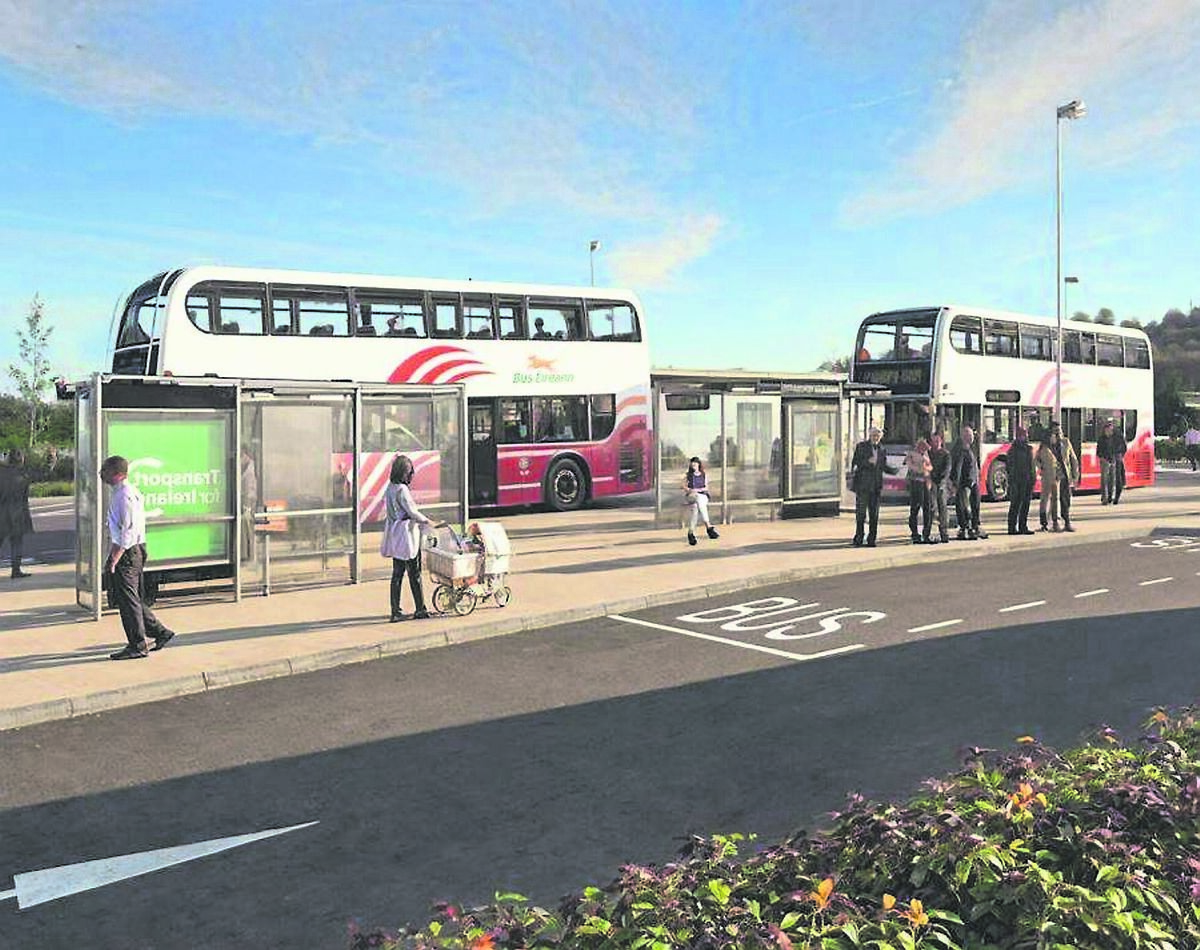
Rather than just invest more in buses, the Government should change car trends, Mr McAdam-O’Connell said, and that business rates in the city centre are far higher than in industrial estates, which forces companies to set up further out, where cars are necessary.
“The rates system actively subsidises inappropriate places of business, while taxing appropriate places,” Mr McAdam-O’Connell said, adding that the cost of commuting to work should be taken into account when people are applying for mortgages, as it can often offset the difference between living close to their work and living more rurally.
Their submission asks “that the rates system be reformed in order not to perpetuate the market distortions that incentivise out-of-town development with lower rateable values than city centre properties and is rebalanced to reward the location of high-volume trip generators and large employment hubs close to the centre of settlements, and disincentivise the location of same in isolated, out-of-town locations, which are only accessible by car, leading to first car ownership”
Free parking spaces for civil servants, or provided by employers to employees, are also a problem, Mr McAdam-O’Connell said, suggesting that it would cost almost the same to give staff a free place to live, which would take cars off roads: “We’re crying out for housing, yet it’s taxed, while parking is subsidised.”
Given that this will be the first budget not to involve the Green Party in five years, he said: “There is a big worry that there will be a dialling back on the improvements that were brought in by the last government.
“Sustainable travel is seen as an attack on rural Ireland, but, in reality, things like Local Link are an absolute lifeline for rural Ireland. Rural areas have suffered more than cities in our switch to a car-dominated society; everyone used to live in walking distance of a shop, school, pub; everything they needed to live their lives.
“Now, the shops and pubs closed down, because people get in their cars and drive past them.
“The schools are still there, but it’s too dangerous to walk the roads to them. The car was the death knell for local services.
“People no longer meet their neighbours on the road for a chat. That destroys communities. We’ve seen what happens in other countries, when community collapses and nobody trusts their neighbour. America is the prime example.”
He added that Cork is “a microcosm of Ireland”, with its large urban centre, but also rural communities, where,“if you’re too young to drive, too old, can’t afford it, you are not allowed to participate in society”.
Greenways would help provide safe routes to buses, Mr Adam-O’Connell said, as would removing as many cars as possible from the roads, adding: “You cannot have public transport without active travel.”
He also appealed for multi-annual funding, because “when funding only comes through once a year and it’s different every year, there’s a rush to spend it, and it’s not spent as effectively”.
Also included in their pre-budget submission are the rapid delivery of Bus Connects, funding for light rail in Cork, including a connection with Kent Station, and funding to further reduce public transport fares, including trialling of free public transport services on particular routes and for particular demographics.

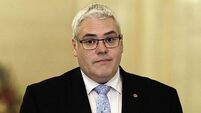
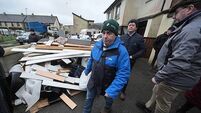
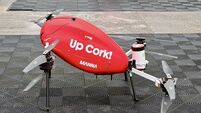

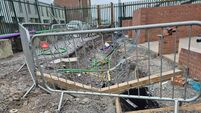

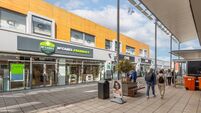


 App?
App?


